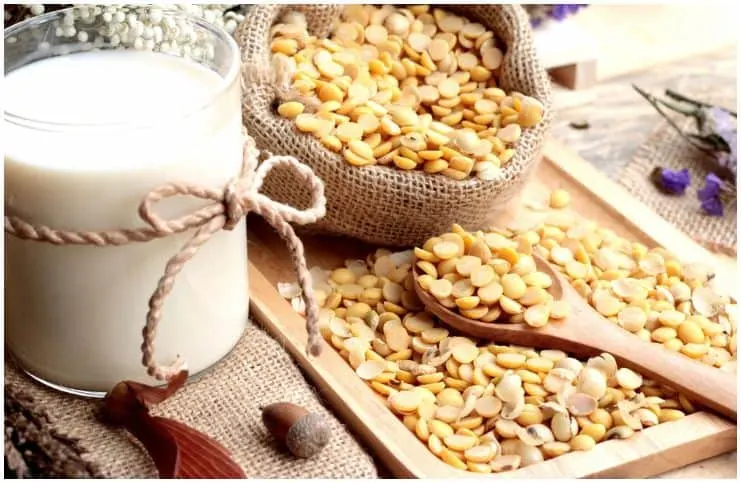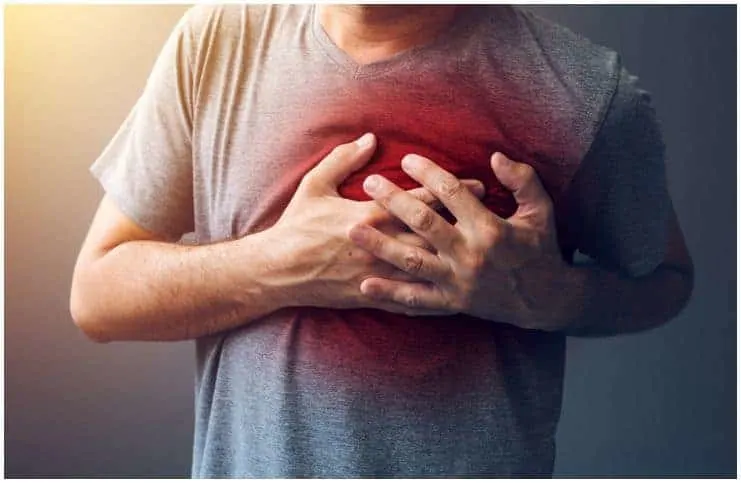CoQ10 (Coenzyme Q10), also known as ubiquinone, is a vitamin-like fat-soluble substance found in the mitochondria of human cells. It is referred to as ubiquinone since it’s ubiquitous within the body.
Levels of Coenzyme Q10 decrease as you age. In addition, Coenzyme Q10 levels have been found to be lower in individuals with certain conditions, like – heart disease.
Health Benefits of CQ10
Physical Performance
Coenzyme Q10 appears to protect against the oxidative damage that tends to follow exercise-induced muscle damage as well as muscle damage resulting from intense physical exercise.
Because this antioxidant is involved in energy production, it is believed that Coenzyme Q10 might improve your physical performance.
In a Japanese study, 17 healthy volunteers took 100 mg of CoQ10 a day and recovered more quickly from exercise than placebo and experienced less fatigue and substantially better physical performance.
Boosts Male Fertility
Infertility is a growing problem worldwide, and researchers estimate that about 1 in every 3 cases is due to fertility problems in the male partner alone.
There is some evidence that this antioxidant might improve sperm count and semen quality in men struggling with infertility, according to the National Institutes of Health.
A sperm count lower than 10 million per ml is considered abnormal and linked with male infertility, based on the most current World Health Organization guidelines. Also, a healthy sperm count is 15 million per milliliter or at least 39 million per sample.
Heart Conditions
Congestive heart failure occurs when the heart muscle doesn’t pump blood as well as it should.
The main symptoms of congestive heart failure are:
- swollen ankles and legs;
- feeling tired most of the time and finding physical exercise exhausting;
- breathlessness at rest or after activity.
Heart failure is one of the most frequent reasons for hospital admissions among people 65 years and older.
Heart failure sufferers with low Coenzyme Q10 have higher death rates, according to a 2010 review that was published in ”Nutrition.”
Boosts Energy Levels
Coenzyme Q10 is involved in the electron transport chain and the generation of adenosine triphosphate – the biochemical way to store and use energy. ATP is a high-energy molecule that stores the energy we need to do just about everything we do.
Parkinson’s Disease
An estimated 1,1 million Americans have Parkinson’s disease and there are approximately 50,000 new cases diagnosed every year.
Parkinson’s disease is a long-term neurodegenerative disease that affects predominately dopamine-producing neurons in the substantia nigra, a basal ganglia structure located in the midbrain.
The first signs and symptoms of Parkinson’s disease include a fine trembling of one hand when it is at rest or a feeling of weakness or stiffness in one limb.
A combination of environmental and genetic factors is thought to contribute to the risk of getting PD.
While the disorder is often diagnosed at around age 60, younger people can also be affected by this neurodegenerative disease.
Early research suggests that high doses of Coenzyme Q10 might be beneficial for individuals in the early stages of PD.
High Blood Pressure
Blood pressure is the pressure of the blood on the walls of the arteries as the heart pumps it around the body.
Blood pressure readings are given as 2 numbers:
- the diastolic pressure – it is the pressure in the arteries as the heart relaxes;
- the systolic blood pressure – it equals the pressure in the arteries as the heart contracts.
High blood pressure (or hypertension) is a serious condition in which blood flows through veins and arteries at higher than normal pressures.
Factors that can raise the risk of developing hypertension include:
- long-term sleep deprivation;
- age – the risk of developing hypertension increases as you get older;
- smoking tobacco and second-hand smoking;
- regularly drinking large amounts of alcoholic beverages;
- being obese or overweight;
- a lack of physical exercise;
- bad sleeping habits;
- a high amount of sodium in your food;
- a diet rich in saturated and trans-fats;
- a family history of hypertension;
- emotional stress.
CoQ10 supplementation lowered systolic blood pressure by 11 to 17 points and diastolic by 8 to 10 points, according to a 2007 analysis of 12 studies of people with high blood pressure which was published in the ”Journal of Human Hypertension.”
Reduces Migraines
A migraine is a neurological condition which can cause multiple symptoms, including:
- sensitivity to light and sound;
- numbness or tingling;
- difficulty speaking;
- vomiting;
- nausea.
It affects about 1 in every 15 men and around 1 in every 5 women.
According to recent research, supplementing with Coenzyme Q10 was 3 times more likely than a placebo to reduce the number of migraines in study participants.
Deficiency
The deficiency of Coenzyme Q10 has been linked with diverse clinical phenotypes, such as:
- isolated nephrotic syndrome;
- cerebellar ataxia (a disorder that occurs when the cerebellum becomes damaged);
- isolated myopathy (a condition that is characterized by recurrent myoglobinuria and exercise intolerance);
- severe infantile multisystemic disease;
- encephalomyopathy (a severe condition that affects multiple body systems).
Dosage
This antioxidant is produced naturally in the human body. Hence, it does not have a recommended intake level and is not a vital nutrient.
However, doctors usually recommend between 100 and 200 mg a day.
Tip – purchase soft-gel ubiquinol form when taking Coenzyme Q10 due to the fact that it has much higher antioxidant potency.
Side Effects of CQ10
Coenzyme Q10 is a safe and effective supplement for a variety of cardiovascular diseases and other health problems, leading to excellent clinical responses while easing the financial burden of multidrug therapy.
But, some people can experience some side effects after supplementing with this antioxidant, including:
- heartburn;
- irritability;
- sensitivity to light;
- dizziness;
- upper abdominal pain;
- nausea;
- rashes;
- increased liver enzymes;
- sleep problems (insomnia).
Statins & CoQ10
The use of LDL cholesterol-lowering drugs, called statins, can significantly decrease circulating CoQ10 concentrations.
Statins are medications that can lower your LDL and total cholesterol. These medications work by blocking a substance that the human body required to produce cholesterol.
Although statins are mainly used to lower bad cholesterol, they also offer other medical benefits, especially the prevention of cardiovascular events in people who are at risk for heart disease or have had a heart attack.
Statins include:
- simvastatin (Zocor);
- rosuvastatin (Crestor);
- pravastatin (Pravachol);
- pitavastatin (Livalo);
- lovastatin (Altoprev);
- fluvastatin (Lescol);
- atorvastatin (Lipitor).
Warfarin
Although CoQ10 supplements are relatively safe with very few side effects, they may reduce the anticoagulant properties of warfarin, a blood thinner medication.
Blood thinners are medications that help blood flow smoothly through the arteries and veins.
Warfarin is a highly effective blood thinner medication that can reduce the risk of stroke in people with atrial fibrillation, an irregular heartbeat that can lead to heart failure.
Also, anticoagulation with this blood thinner notably reduces the mortality and morbidity related to venous and arterial thromboembolism.
ALSO READ: Acacia Gum (Gum Arabic or E414) – Side Effects
Healthy Food Sources of Coenzyme Q10
Eating a diet focused on healthy food is always the best method to fuel your physical body with essential nutrients. Healthy sources of this antioxidant include:
- peanuts – 2.67 mg/100g;
- pistachios – 2.00 mg/100g;
- walnuts – 1.90 mg/100g;
- soy beans – 1.87 mg/100g;
- sesame seeds, – 1.76 mg/100g;
- hazelnuts – 1.67 mg/100g;
- avocado – 0.95 mg/100g;
- parsley – 0.75 mg/100g;
- corn germ – 0.70 mg/100g;
- broomrape (flower cluster) – 0.67 mg/100g;
- broccoli – 0.59 mg/100g;
- rice bran – 0.49 mg/100g;
- sorrel herb – 0.36 mg/100g;
- wheat germ – 0.35 mg/100g;
- blackcurrants – 0.34 mg/100g;
- Japanese radish leaves – 0.33 mg/100g;
- sweet potato – 0.33 mg/100g;
- strawberries – 0.14 mg/100g;
- Japan barnyard millet – 0.14 mg/100g;
- grapefruit – 0.13 mg/100g;
- apples – 0.11 mg/100g;
- buckwheat – 0.11 mg/100g.
Image source – Shutterstock
ALSO READ: Manganese vs Magnesium – Differences
Sources https://www.ncbi.nlm.nih.gov/pubmed/7752828 http://lpi.oregonstate.edu/mic/dietary-factors/coenzyme-Q10 https://www.mayoclinic.org/drugs-supplements-coenzyme-q10/art-20362602 https://examine.com/supplements/coenzyme-q10/

